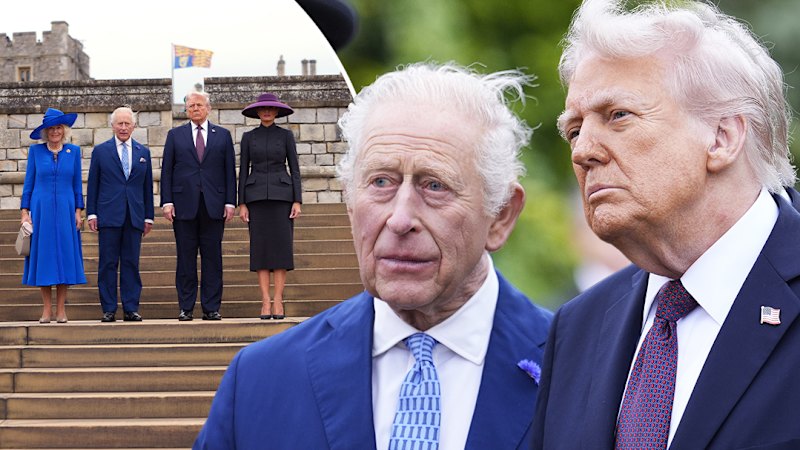
US President Donald Trump met with members of the UK Royal Family at Windsor Castle on July 13, 2018, as part of his official state visit to the United Kingdom. This meeting marks a significant moment in ongoing diplomatic relations between the United States and the UK, showcasing the ceremonial elements of international politics.
During the visit, President Trump was received by Queen Elizabeth II, alongside other prominent royals, including Prince Charles, Prince William, and the Duchess of Sussex, Meghan Markle. The meeting included discussions on topics of mutual interest, although specific details regarding the conversations have not been publicly disclosed.
The event unfolded against a backdrop of various protests across London, as tens of thousands of demonstrators voiced their opposition to Trump’s policies. These protests reflected a mix of sentiments among the British public regarding the President’s visit, with many citizens expressing their views on social issues and international relations.
While the formalities of the meeting remained largely traditional, the presence of President Trump added a contemporary element to the royal occasion. The President’s visit to Windsor was preceded by meetings with UK Prime Minister Theresa May, where discussions focused on trade, security, and the future of US-UK relations post-Brexit.
Despite the protests, the royal family maintained its commitment to diplomatic engagement. The royal family has long been seen as a unifying force in British society, emphasizing the importance of maintaining strong ties with key allies such as the United States.
The visit concluded with a ceremonial handshake between President Trump and Queen Elizabeth II, symbolizing the enduring alliance between the two nations. This moment captured the essence of the diplomatic relationship that has evolved over decades, highlighting both the ceremonial traditions and the complexities of modern politics.
As President Trump continues his state visit, the implications of his discussions with the royal family and UK leaders will likely resonate beyond the immediate events. The outcomes may influence future diplomatic initiatives, trade agreements, and collaborative efforts on global issues, underscoring the significance of such high-profile meetings in shaping international relations.






